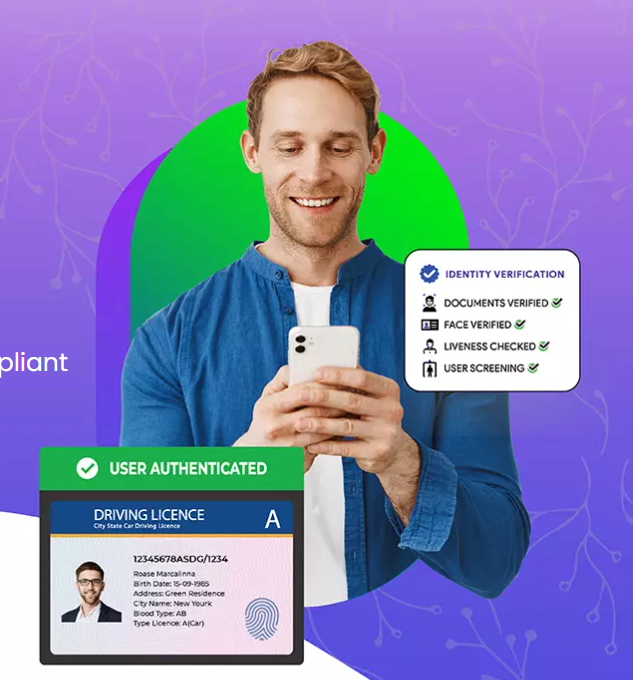Introduction
In today’s fast-paced digital world, identity fraud and cybercrime are at an all-time high. Businesses face the challenge of protecting customer data while ensuring a seamless user experience. This is where Identification Verification Service (IDV) come into play. These services help confirm that a person is who they claim to be, reducing the risk of fraud, complying with regulations, and building trust.
This article dives deep into what identification verification services are, why they are crucial, and how they benefit businesses and users.
What is an Identification Verification Service?
An Identification Verification Service is a solution that authenticates an individual’s identity using various methods and technologies. It is widely used across industries like finance, healthcare, e-commerce, travel, and government sectors to prevent fraud and comply with KYC (Know Your Customer) and AML (Anti-Money Laundering) regulations.
Common Methods of Identity Verification:
- Document Verification – Verifying passports, ID cards, driving licenses.
- Biometric Authentication – Using fingerprints, facial recognition, or iris scans.
- Database Checks – Matching user details with trusted government and financial databases.
- Liveness Detection – Ensuring the user is physically present and not using a photo or video spoof.
- Two-Factor Authentication (2FA) – Adding extra security layers during login or transactions.
Why is Identity Verification Important?
The need for robust identity verification cannot be overstated. Here’s why businesses must prioritize it:
1. Fraud Prevention
Cybercriminals often exploit weak identity systems. By using advanced verification techniques, businesses can stop fraud before it happens.
2. Regulatory Compliance
Industries such as banking, fintech, and insurance must adhere to strict KYC and AML regulations. Failure to comply can lead to heavy penalties and legal complications.
3. Building Customer Trust
A secure verification process reassures customers that their data is safe, which enhances brand reputation.
4. Protecting Sensitive Data
Verification systems use encryption and secure servers to safeguard personal data against breaches.
Key Features of a Good Identification Verification Service
Not all ID verification solutions are the same. Here are essential features to look for:
- AI-Powered Technology – Detects fraud patterns and improves accuracy.
- Fast Processing – Quick verification without compromising security.
- Global Coverage – Supports documents from multiple countries.
- User-Friendly Interface – Seamless onboarding experience for customers.
- Regulatory Alignment – Compliant with GDPR, KYC, AML, and other global regulations.
Types of Identification Verification Services
There are multiple approaches to verifying identity, depending on business needs:
1. Document-Based Verification
The user submits a government-issued ID (like a passport or driver’s license), which is scanned and analyzed for authenticity.
2. Biometric Verification
Uses physical characteristics such as:
- Facial Recognition
- Fingerprint Scans
- Voice Biometrics
3. Knowledge-Based Authentication (KBA)
Asks users security questions based on their personal history.
4. Two-Factor Authentication (2FA)
Combines something the user knows (password) with something they have (OTP, mobile device).
Benefits for Businesses and Customers
For Businesses:
- Reduced Fraud Losses
- Improved Compliance with global regulations
- Streamlined Onboarding for customers
- Enhanced Brand Reputation through secure processes
For Customers:
- Faster Account Setup
- Increased Confidence in sharing personal information
- Protection Against Identity Theft
How Does the Process Work?
The ID verification process is usually straightforward and automated:
- User Registration – Customer signs up for a service.
- Document Upload – Customer uploads an ID document via the app or website.
- Facial/Biometric Scan – Matches face with ID photo using AI algorithms.
- Liveness Check – Ensures user is real and not using static images.
- Verification Result – Approved or flagged for review.
Industries Using Identification Verification Services
- Banking and Financial Institutions – For account opening and loan applications.
- E-Commerce and Online Marketplaces – To verify buyers and sellers.
- Healthcare – For securing patient records.
- Travel and Hospitality – For passenger verification and fraud prevention.
- Government Services – For issuing IDs, passports, and benefits.
Future of Identity Verification
The future is AI-driven, with blockchain technology and decentralized identity systems gaining traction. Expect faster, more secure, and user-friendly verification processes in the coming years.
Final Thoughts
Identification Verification Services are essential in a world where online fraud and cyberattacks are on the rise. By adopting the right solution, businesses can protect customer data, reduce risk, and comply with regulations while delivering a smooth user experience.
If your business deals with sensitive customer information, investing in a trusted ID verification system is no longer optional—it’s a necessity for survival and growth.
